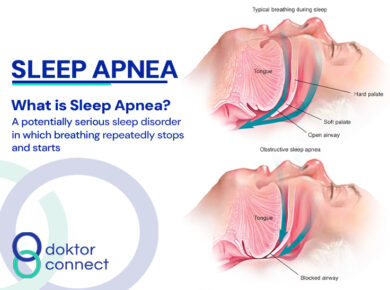In 2018, 228 million people had malaria globally. This figure is more than the population of Nigeria, the most populous Black country in the world. 1 in 4 of those cases occurred in Nigeria, a country in which malaria is endemic.
Malaria is so common in Nigeria that the average Nigerian practices self-diagnosis when it comes to the disease. You are probably one of the ‘malaria- doctors’, convinced that you know when you have malaria.
But, do you?
First, what is malaria?
Malaria is a disease caused by a parasite called Plasmodium spp. Plasmodium is transmitted when an infected mosquito bites an uninfected person. Malaria killed 409,000 people in 2019. 24% of the dead were from Nigeria.
Plasmodium falciparum is a variant of the malaria parasite. It causes severe, and potentially fatal disease, and it is responsible for over 95% of the malaria cases in Nigeria.
Pregnant women, children under five years, and people with diseases that weaken their immune system are at risk of dying if they contract malaria.
How can you know if you have malaria?
There are two ways to answer this.
The long answer is:
Most diseases have similar signs and symptoms. So, unless expressly stated, it is crucial to keep in mind that these signs and symptoms are usually present in more than one disease. For instance, a headache can mean a stroke, migraine, eye disease, malaria, or good old hunger. Also, fever is present in malaria, common cold and stomach flu.
The short answer is that you cannot know for sure if you have malaria.
Your signs and symptoms can help the doctor suspect that you have malaria. This suspicion can be confirmed by a malaria test.
Some of the common signs and symptoms of malaria include:
- Headache
- Joint pain
- Bitter taste in the mouth
- Fever
- Chills
- Vomiting
Even if you have these symptoms above, it is not enough reason to take malaria drugs without consulting a doctor. Indiscriminate use of Artemisinin Combination Therapy drugs (ACTs), the recommended drugs for malaria treatment in Nigeria is not ideal. Not every headache or fever is malaria. When you use ACTs indiscriminately, you contribute to the emergence of drug-resistant malaria. The WHO has warned against this too. The last time we had drug-resistant malaria (the chloroquine era), hospital admissions and deaths from malaria rose to about 3 times the average number.
So, what can you do if you suspect that you have malaria?
You can book an appointment with a doctor online through the DoktorConnect app (it is free for the first 30 days) and talk to a doctor instantly. The doctor will ask you to do a malaria test, and a positive malaria test confirms that you indeed have malaria.
Sometimes, you may test positive for malaria shortly after finishing a course of antimalarial drugs. Some of the reasons why this can happen include:
- A malaria RDT (Rapid Diagnostic Test) was done for you.
The RDT tests for the malaria parasite antigen (a protein that acts as the parasite’s ID card), and the antigen may remain in your blood for up to two weeks after the parasite has been cleared from your body.
- Your previous episode of malaria was poorly treated or not effective enough to get rid of the parasite.
Whatever the case may be, it is clear that talking to a doctor is the best thing to do if you suspect that you have malaria.
How to Prevent Malaria
- Spray your house with insecticide spray regularly
- Sleep under insecticide-treated nets (ITN)
- Avoid wearing clothing that exposes your body. The more you are covered, the less likely you are to be bitten by a mosquito
- Get rid of stagnant water bodies around your house as mosquitos often breed in these puddles.
- Complete your malaria drug as instructed so you can be completely cured.
So, stop these statements today:
“I know my body, once my left leg starts itching, and my mouth is bitter, then I know it is malaria”
“In my family, headache and cough usually mean that we have malaria. Even my grandmother has the same thing.”
And start approaching malaria treatment the right way. Always start by consulting a doctor.



